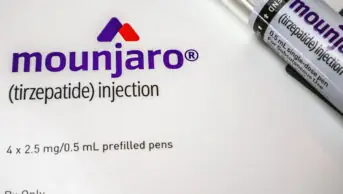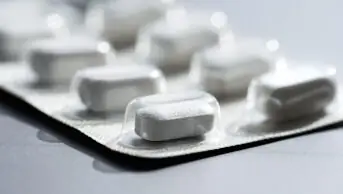The Yellow Card scheme is a system for reporting adverse drug reactions (ADRs) from medicines or adverse incidents with medical devices in the UK, ensuring that these products are safe for both healthcare professionals and patients1–3. Reporting these issues helps the MHRA to identify new safety concerns, review products and take action to minimise risks. Despite the role of the Yellow Card reporting system in pharmacovigilance in the UK, understanding and uptake of the scheme remains limited1–3.
The authors designed a survey to explore healthcare professionals’ awareness, usage and perceptions of the Yellow Card Scheme for reporting ADRs. It was aimed at identifying current levels of engagement, perceived barriers to reporting, confidence in identifying ADRs and opportunities for improving reporting practices within the East London NHS Foundation Trust. The insights gathered will inform targeted interventions to enhance pharmacovigilance and patient safety through more effective use of the Yellow Card scheme.
A quantitative, cross-sectional survey was conducted via Microsoft Forms. The link/QR code to the survey was sent to inpatient and community mental health teams (around 80 people in total). A total of 25 healthcare professionals from across the mental health directorate team in Newham took part in the survey, including nurses, pharmacists, pharmacy technicians, consultants and junior doctors. More than half of the respondents were nurses (n=13), which could be because nurses make up a larger part of this workforce.
Limitations of this work include sample size and population that the survey was sent to. The authors are keen to replicate this survey in the future using a larger population of staff across different parts of the trust.
The survey results showed that 84% (n=21) were aware of the Yellow Card scheme, with 52% (n=13) selecting that they were ‘fully aware’. A total of 16% of those asked (n=4) had never heard of the scheme.
Despite awareness of the scheme, actual usage is very low — 76% (n=19) have never reported and 12% (n=3) were unsure if they had reported, suggesting underutilisation of the scheme. Reporting is infrequent: no respondents report regularly; 12% (n=3) report a few times a year and 20% (n=5) have only reported one or twice in total.
Shared responsibility is recognised, most respondents (72%; n=18) believe that any healthcare professional involved in patient care should report ADRs; however, some still think ADR reporting is primarily the role of pharmacists (n=5) or were unsure (n=2).
When asked about barriers to reporting, participants selected:
- Lack of awareness (56%; n=14);
- Uncertainty about what qualifies as reportable (40%; n=10);
- Lack of time (40%; n=10);
- Belief that someone else is responsible (20%; n=5).
Confidence levels around reporting were low, only 16% (n=4) felt very confident in identifying and reporting ADRs, while nearly half (48%; n=12) feel not very or not at all confident.
There was a strong demand for additional support and training:
- 92% (n=21) wanted more training and awareness sessions;
- 76% (n=19) wanted clearer guidelines;
- 52% (n=13) support improved digital systems to ease reporting.
This highlights the need for targeted education and training — future iniatives could look into regular workshops, e-learning modules and onboarding sessions for new staff around ADR reporting and the value this brings.
The authors also suggest that integration of reporting into the clinical workflow (e.g. in electronic prescribing systems) could streamline processes and increase uptake of the Yellow Card scheme, given time constraints and underreporting.
Organisations should consider allocating dedicated time or resource to pharmacovigilance activities. Potentially, also looking at ADR champions or leads within the department could help sustain engagement. Metrics, such as the number of reports submitted and staff confidence levels, could be used to guide continuous improvement.
Rajesh Jethwa, medication safety officer and ELFT patient safety specialist, East London NHS Foundation Trust
Nathaniel Addo, clinical lead pharmacist – Triage Wards Newham, East London NHS Foundation Trust
- 1.The Yellow Card scheme: guidance for healthcare professionals, patients and the public. Medicines and Healthcare products Regulatory Agency. January 2015. Accessed June 2025. https://www.gov.uk/guidance/the-yellow-card-scheme-guidance-for-healthcare-professionals
- 2.Side effects (adverse drug reactions). Medicines & Healthcare products Regulatory Agency Yellow Card Website. Accessed June 2025. https://yellowcard.mhra.gov.uk/sideeffects
- 3.Board Meeting Adverse Drug Reaction (ADR) reporting by patients. Medicines and Healthcare products Regulatory Agency . December 2019. Accessed June 2025. https://assets.publishing.service.gov.uk/government/uploads/system/uploads/attachment_data/file/852275/Item_08__ADR_reporting_by_patients.pdf


